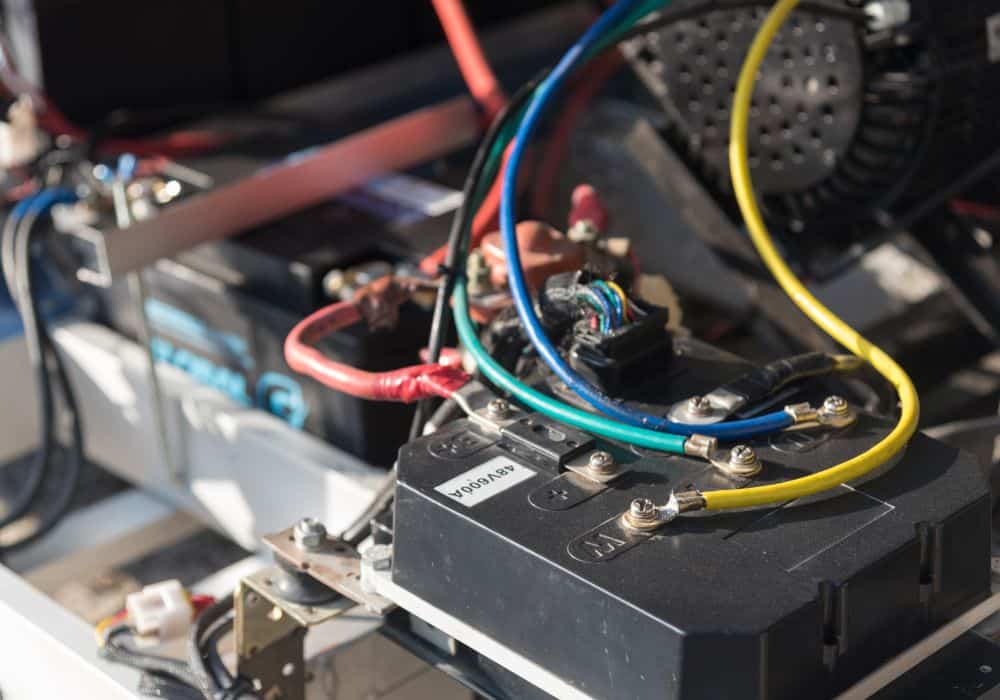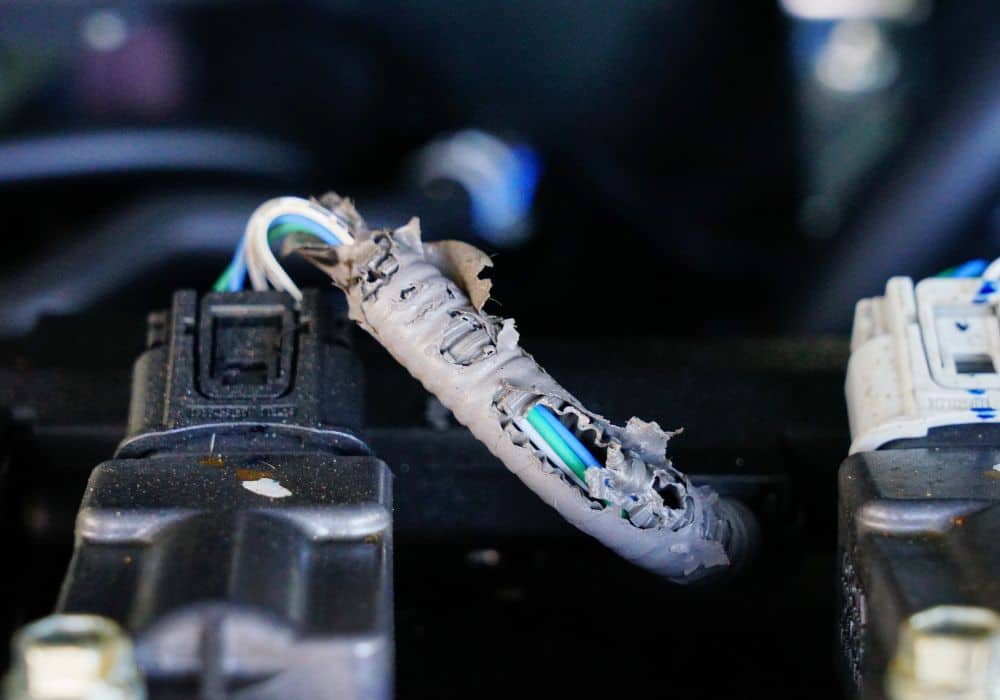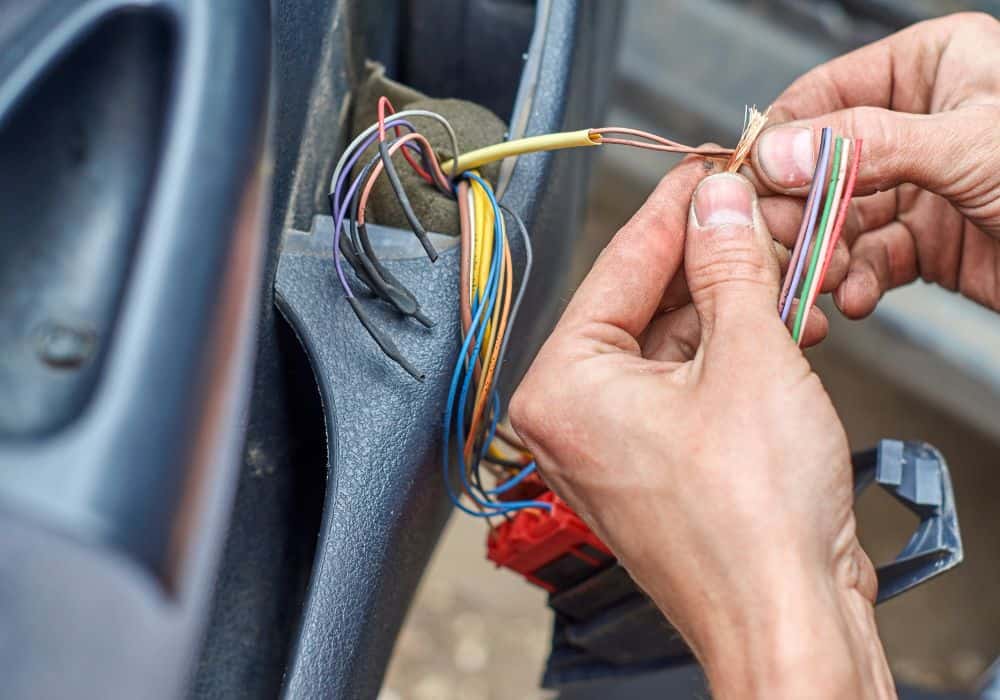If you consider yourself one of those car enthusiasts out there, you probably know that one of the most important things to consider when modifying your vehicle is the gauge of wire you use for different components. And if you’re fairly new to the world of cars, you may have lots of questions in this area.
For example, are you wondering what gauge wire you need from your battery to your starter? This is an important question to answer, as the wrong gauge wire can cause all sorts of problems in your vehicle.
In this blog post, we’ll go over everything you need to know about gauge wire and starter systems so that you can make the best decision for your car.
Without further ado, let’s begin!
Table of Contents
What does gauge mean?
First of all, what does gauge mean? The gauge of a wire refers to its wire size (the thickness or diameter) and is measured in American Wire Gauge (also known as AWG). The thicker the gauge of the wire, the smaller the AWG number. For example, a 12-gauge wire is thicker than a 14-gauge wire.
When it comes to gauge wire and your vehicle, the general rule of thumb is that the thicker the wire, the better. This is because thicker wires can carry more current than thinner wires. For your vehicle, you want to consider both how much current you need the wire to carry and also how far you need the cable to run, because the longer the distance is, the thicker you need your wire to be.
But no matter what, it’s important to use the right gauge wire for the job to avoid problems like voltage drop and short circuits. They can be more expensive and more difficult to work with, but they are worth it in the end when they work properly.
Choosing the Right Gauge Wire for the Job
Let’s look at these pieces of the puzzle in more detail, so that you can choose the right gauge wire for your starter system.

1. Know the Amperage Rating of Your Starter
First, you need to know the amperage rating and current requirement of your starter. The amperage rating is the maximum amount of current that your starter can draw. For most starters, this rating will be between about 150 and 200 amps.
The current requirement (measured in amperes) can be affected by a number of factors, including the accessories you have installed on your vehicle, the type of vehicle you have, and the length of the cable. In general, you’ll want to use a thick cable for your starter if you have a high-powered car or if you’ve made modifications that increase the current draw.
Basically, it is important to know the amperage rating because it will help you determine the gauge of wire you need.
2. Know the Length of the Cable
Next, you need to know the length of the cable between your vehicle’s battery and starter. The longer the cable, the more voltage drop you’ll experience. Voltage drop is a decrease in voltage that occurs when electric current flows through a conductor, such as a wire.
As the voltage drops, the amount of current that flows to the starter decreases. For example, a 12 volt battery with AWG wire needs less than 3% voltage drop. Otherwise, a drop can cause your starter to operate less efficiently, or not at all.
To avoid voltage drop, you’ll need to use a thicker gauge wire for longer runs.
3. Consider the Cross-Sectional Area of the Wire

Another factor to consider is the cross-sectional area of the wire. As we mentioned before, the wire’s gauge is a measure of its cross-sectional area, which is the amount of space inside the wire that is available for carrying current.
The cross-sectional area is important because it determines the amount of current that a wire can carry. The larger the cross-sectional area (or the thicker the wire and the lower the gauge number), the more current the wire can handle. Likewise, the smaller the cross-sectional area (or the thinner the wire and the higher the gauge number), the less current the wire can handle.
In general, you’ll want to use the thickest gauge wire that you can for your starter system. This will help to ensure that your starter gets the power it needs, and that you don’t experience any voltage drop.
4. Consider the Voltage Drop
We’ve briefly mentioned voltage drop in other sections, but to be more specific here, voltage drop is the difference in voltage between the source (in this case, your battery) and the load (your starter). In other words, it is the resistance of the wire, and it can be a serious problem if the voltage drop is too high.
There are a number of factors that can cause voltage drop, including the length of the cable, the gauge of the wire, and the amount of current flowing through the wire. The voltage drops over distance, so that is why you’ll want to use a thicker gauge wire for longer runs and higher currents.
Since voltage drop can cause your starter to operate less efficiently, or not at all, it can lead to starter issues or other problems, such as short circuits.
Use the Right Wire Gauge for Your Starter System
So, what gauge wire should you use from your car’s battery to the starter? It depends on a number of factors, but in general, you’ll want to use a 4-gauge wire for the positive battery terminal and a 2-gauge wire for the negative battery terminal.
If you have a high-powered car or if you’ve made modifications that increase the current draw, you may need to go with a thicker gauge wire. And if you have a long cable run, you’ll also want to use a thicker gauge wire to minimize voltage drop.
Frequently Asked Questions about Gauge Wire from Battery to Starter
Now that you have a better idea of what type of wire gauge you need from your battery to your starter, let’s look at some of the most frequently asked questions by others like you.
1. Will using a thicker gauge wire improve the performance of my starter?
It’s possible, but also, the answer is: not necessarily. The gauge of the wire is only one factor that determines the amount of current that flows through it. The length of the cable, the cross-sectional area of the wire, and the amount of resistance also play a role.
So, if you’re experiencing starter issues, there could be other factors at play, too.
2. I have a high-powered car. What gauge wire should I use for my starter system?
Generally speaking, you’ll want to use a 4-gauge wire for your positive battery terminal and a 2-gauge wire for your negative battery terminal. However, if you have a long cable run or if you’ve made modifications that increase the current draw, you may need to go with a thicker gauge wire.
This likely includes high-powered cars. For more information on what gauge you should use, contact a professional mechanic in your area who can take a look at your vehicle.

3. I’m having starter issues. Could it be because of the gauge of my wire?
Maybe so. The gauge of the wire is just one factor that can affect your starter system, but it is a common issue. So, yes, also check the length of the cable, the cross-sectional area of the wire, and the amount of resistance, but if you’re having starter issues, it could be the gauge of the wire.
Do some research and choose another gauge of wire to see if it changes things. If you continue to have starter issues, however, then the issue may be deeper. At that point, it’s best to consult with a professional to troubleshoot the problem.
4. Can I use thinner gauge wire for my starter system if I’m not having any problems?
You could, but it’s not recommended. If you’re not having any problems, then keep the thicker gauge wire that you have already. This will ensure that your starter gets the power it needs and that you don’t experience any voltage drop.
In Conclusion
There you have it – all you need to know to get started with choosing the right gauge wire. If you follow these guidelines, you should be able to choose the right gauge wire for your starter system.
Of course, there are many factors to consider when choosing the right gauge wire for your application. If you’re not sure what gauge wire to use, or if you’re having trouble troubleshooting electrical problems, it’s always a good idea to consult with a professional mechanic. They can help you choose the right gauge wire for your needs and make sure that your electrical system is up to the task.
What questions do you have about gauge wire, batteries, and starters? Let us know in the comments below!
